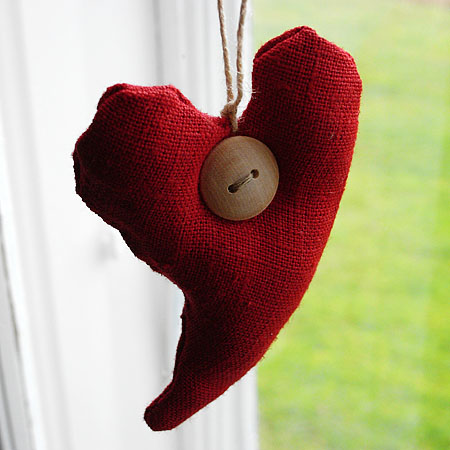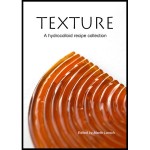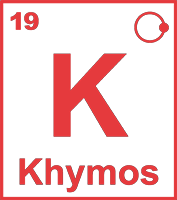
The avalanche of books in the food/science intersection this fall has been truly amazing. Three books in particular have showcased special restaurants: el Bulli, Alinea and The Fat Duck.
 I own the first two and both – in different ways – are very satisfying. In line with previous releases from Ferran Adria, A day at el Bulli is extremely thorough at documenting exactly that – a complete day at the restaurant, with minute-by-minute photographs. It’s all very appealing – and you’ll be surprised by all the recipes that are included! The nice thing about this book is that it serves both as a coffee table inspirational book (for us geeks), but also as a great resource for those who are professionally involved.
I own the first two and both – in different ways – are very satisfying. In line with previous releases from Ferran Adria, A day at el Bulli is extremely thorough at documenting exactly that – a complete day at the restaurant, with minute-by-minute photographs. It’s all very appealing – and you’ll be surprised by all the recipes that are included! The nice thing about this book is that it serves both as a coffee table inspirational book (for us geeks), but also as a great resource for those who are professionally involved.
 The Alinea book is not as documenting in it’s style, but the level of detail and sophistication does not stand back from that of el Bulli. And the number of recipes included and details described is amazing. It has a very nice and useful index with main ingredients pointing you to the respective recipes, so if you want to cook with walnuts for instance, the index immediately tells me that there are eight recipes to chose from. And even though each single dish/presentation typically includes 3-5 separate recipes; for an amateur like me it’s perfectly fine to extract only one of the recipes from a presentation and turn that into a dish on it’s own.
The Alinea book is not as documenting in it’s style, but the level of detail and sophistication does not stand back from that of el Bulli. And the number of recipes included and details described is amazing. It has a very nice and useful index with main ingredients pointing you to the respective recipes, so if you want to cook with walnuts for instance, the index immediately tells me that there are eight recipes to chose from. And even though each single dish/presentation typically includes 3-5 separate recipes; for an amateur like me it’s perfectly fine to extract only one of the recipes from a presentation and turn that into a dish on it’s own.
 The Big Fat Duck Cookbook is still on my wish list – I expect to receive it in January and I’m truly looking forward to that. The reviews have been great and – well – there’s probably a lot more to say about a book that weighs more than than 5 kg, but I’ll leave it there!
The Big Fat Duck Cookbook is still on my wish list – I expect to receive it in January and I’m truly looking forward to that. The reviews have been great and – well – there’s probably a lot more to say about a book that weighs more than than 5 kg, but I’ll leave it there!
 Apart from these three books it’s hard to get around Under pressure by Thomas Keller, especially when considering that I got my immersion circulator the other day. It’s a book completely devoted to sous-vide cooking, written by one of the pioneers who elevated sous-vide from a convenient boil-in-bag method to the realms of gastronomy. Many (most?) of the recipes are not suited/intended for normal everyday cooking – at least if you depend on a regular grocery store like mine that doesn’t stock rabbit, quail and squab. But you’ll be surprised by how many recipes he includes for vegetable and fruit sous-vide!
Apart from these three books it’s hard to get around Under pressure by Thomas Keller, especially when considering that I got my immersion circulator the other day. It’s a book completely devoted to sous-vide cooking, written by one of the pioneers who elevated sous-vide from a convenient boil-in-bag method to the realms of gastronomy. Many (most?) of the recipes are not suited/intended for normal everyday cooking – at least if you depend on a regular grocery store like mine that doesn’t stock rabbit, quail and squab. But you’ll be surprised by how many recipes he includes for vegetable and fruit sous-vide!
 Apart from these must-have books I’d check out the following books which would be recommended Christmas gifts for those interested in food or science or both. The title The Hungry Scientist Handbook immediately caught my attention (just like anything does that combines food and science). According to the description in includes more than 20 DIY projects ranging from edible origami to glowing lollipops and cryogenic martinis. O Boy! I can’t wait till I receive my copy 😉
Apart from these must-have books I’d check out the following books which would be recommended Christmas gifts for those interested in food or science or both. The title The Hungry Scientist Handbook immediately caught my attention (just like anything does that combines food and science). According to the description in includes more than 20 DIY projects ranging from edible origami to glowing lollipops and cryogenic martinis. O Boy! I can’t wait till I receive my copy 😉
 For those looking for a gift that combines science with Christmas I can warmly recommend the classic Can Reindeer Fly?: The Science of Christmas. In an entertaining and light hearted style topics such as the psychology of giving, the laws of shopping and the thermodynamics of turkey preparation are covered. And the most important question of all – how does Santa manage to deliver all those presents in one night? – is also answered in a proper scientific manner. I can only recommend this book – it’s the perfect Christmas gift for anyone who needs to be (or already is) convinced that science can be fun!
For those looking for a gift that combines science with Christmas I can warmly recommend the classic Can Reindeer Fly?: The Science of Christmas. In an entertaining and light hearted style topics such as the psychology of giving, the laws of shopping and the thermodynamics of turkey preparation are covered. And the most important question of all – how does Santa manage to deliver all those presents in one night? – is also answered in a proper scientific manner. I can only recommend this book – it’s the perfect Christmas gift for anyone who needs to be (or already is) convinced that science can be fun!
 And then there are all the classics of course: On food and cooking, CookWise (now supplemented by BakeWise), The Science of cooking, Molecular gastronomy – exploring the science of flavor and Kitchen Mysteries – Revealing the science of cooking. You can find many more suggestions over at the static pages in the section molecular gastronomy.
And then there are all the classics of course: On food and cooking, CookWise (now supplemented by BakeWise), The Science of cooking, Molecular gastronomy – exploring the science of flavor and Kitchen Mysteries – Revealing the science of cooking. You can find many more suggestions over at the static pages in the section molecular gastronomy.
 If you’re looking for for a true gift-for-geeks you can buy a printed copy of “Texture – A hydrocolloid recipe collection” for only $4.95 + shipping from lulu.com, a print on demand company. It’s current sales rank is #104,208 so I don’t expect it to found under very many Christmas trees 🙂 You can of course also download the pdf at no cost!
If you’re looking for for a true gift-for-geeks you can buy a printed copy of “Texture – A hydrocolloid recipe collection” for only $4.95 + shipping from lulu.com, a print on demand company. It’s current sales rank is #104,208 so I don’t expect it to found under very many Christmas trees 🙂 You can of course also download the pdf at no cost!

My impressions:
The Big Fat Duck Cookbook: Can’t say enough good things. The appendices alone are worth the price of admission. The book itself is a work of art, just as a physical object, and the recipes appear to be written with Heston Blumenthal’s usual attention to detail.
Under Pressure – disappointing. Most of the recipes require the use of a chamber vacuum sealer in unmodified form. Still interesting, but not vital.
The Hungry Scientist Handbook – Also a bit disappointing. Only a couple of actual recipes. I haven’t read it all that thoroughly yet, though.
I’d recommend Texture more highly than either Under Pressure or the Handbook, to be honest!
The El Bulli one is fantastic. It makes you realise all the work that is being done in Roses, amazing. The alinea is great as well but very challenging, and I am still waiting for my Big Fat Duck book. Thanks for the wishlist Martin.
Yeah Big Fat Duck book. awesome like hugh says the appendices makes its worth the money itself let alone the intro and reciepes. and the ART WORK. The Art work it self is really awesome
Day at El Bulli I flipped through it at costco (which means it was probably cheap in price) but it didn’t interest me /shrug. I mean I know I can’t get a reso at el bull or the money but don’t need to make a book about it pfft
Great booklist! I would suggest also “Cooking the Quintessential Art” from Hervé This and Pierre Gagnaire. It was quite interesting to read their two different approaches to the question of aesthetic in cooking and their historical excursus on the concept of “beauty” was quite teaching. It doesn’t really feature any recipe, but the paragraphs written by Gagnaire give a nice insight on how a chef thinks about his dishes while he is still creating them in his mind.
I would like to pose a question too. Reading recipes books can be quite interesting to learn about combinations and techniques but often I found myself in front of the need of metabolising them, to go beyond the lines explaining what is really happening. So far I could find only Peter Barham’s book “The Science of Cooking” book with a similar approach for simple recipes.
Does you know of any other source that has this kind of informations? going so deep in the description of the proposed recipes treating them as scientific experiments?
Would be nice to be able to “read” a recipe to the heart!
Alessio: Yes, I do! It’s a book by Hervé This that hasn’t been translated to English yet (and hence I didn’t include it in this list). I own the German translation “Kulinarische Geheimnisse” of the French original “Révélations gastronomiques”. Basically it’s a book with 55 recipes, and inbetween every single step comes the scientific explanation of what is happening. I’ve long wanted to use the same format with recipes here at Khymos, but haven’t found the time for that yet.
I’m so looking forward to putting out the cash for both the Alinea and Big Fat Duck books… Maybe not for Christmas…
Thanks a lot Martin, that will be my next buy indeed!! :-))
I think I will ask my friends to gift me the Big Fat Duck book for my PhD :PP
One reason more to finish fast!! 😀
Thank for share again your hydrocolloid recipe collection!